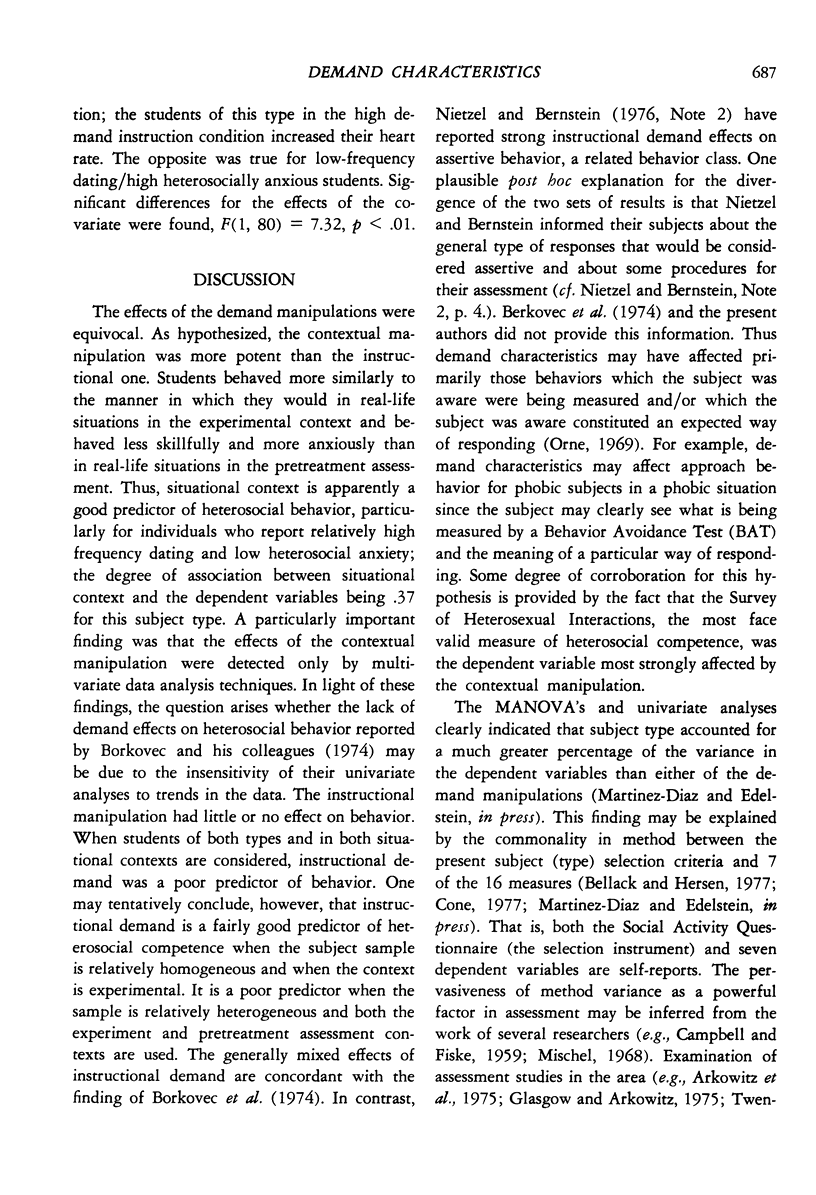Abstract
The present study assessed the effects of a contextual demand manipulation (pretreatment assessment versus experiment) and an instructional demand manipulation (high demand for competent behavior versus neutral demand) on the analogue assessment of heterosocial competence. Also assessed was the interaction between each demand manipulation and subject characteristics (high-frequency dating/low heterosocially anxious versus low-frequency dating/high heterosocially anxious college males). Students were assigned randomly to one of four groups receiving differential information and instructions. Students completed a battery of five standard paper-and-pencil questionnaires, responded out loud to 10 taped social situations, and conversed with a female confederate while being videotaped for five minutes. Multivariate analyses revealed highly significant differences between subject groups and between contextual manipulation groups. Univariate analyses revealed that only 3 of the 16 dependent measures, including 2 of the self-reports, were significantly affected by the contextual demand. Results are discussed in light of previous studies of phobic behavior and social skills. Various avenues for future research were presented.
Keywords: analogue assessment, demand characteristics, multivariate effects, social skills
Full text
PDF










Selected References
These references are in PubMed. This may not be the complete list of references from this article.
- BENJAMIN L. S. STATISTICAL TREATMENT OF THE LAW OF INITIAL VALUES (LIV) IN AUTONOMIC RESEARCH: A REVIEW AND RECOMMENDATION. Psychosom Med. 1963 Nov-Dec;25:556–566. doi: 10.1097/00006842-196311000-00005. [DOI] [PubMed] [Google Scholar]
- Nietzel M. T., Bernstein D. A. Effects of instructionally mediated demand on the behavioral assessment of assertiveness. J Consult Clin Psychol. 1976 Jun;44(3):500–500. doi: 10.1037//0022-006x.44.3.500. [DOI] [PubMed] [Google Scholar]
- Twentyman C. T., McFall R. M. Behavioral training of social skills in shy males. J Consult Clin Psychol. 1975 Jun;43(3):384–395. doi: 10.1037/h0076743. [DOI] [PubMed] [Google Scholar]
- Watson D., Friend R. Measurement of social-evaluative anxiety. J Consult Clin Psychol. 1969 Aug;33(4):448–457. doi: 10.1037/h0027806. [DOI] [PubMed] [Google Scholar]


